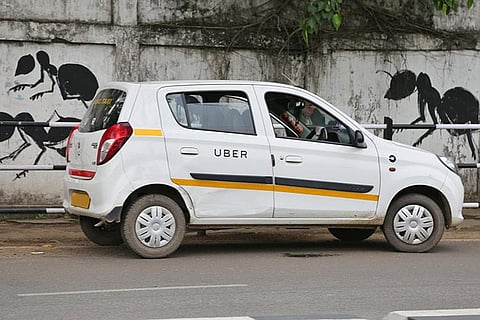

Schools, malls and theatres have been closed, a raft of public events and summer classes have been cancelled, travel restrictions and work from home have been advised for IT (information technology) companies, and then there is the general fear over the coronavirus pandemic. These factors have placed several states in the country in partial lockdown.
With this, the movement and commute of the public have reduced, which, in turn, has taken a toll on the daily income of taxi and auto-rickshaw drivers, especially in metro cities like Bengaluru and Kochi.
In fact, even before Karnataka Chief Minister BS Yediyurappa issued the official order, which came into effect from Saturday, many drivers in Bengaluru told TNM that the dip in passengers had already started and now peaked with the new directive.
“I haven’t started my vehicle in the last two to three days,” Sandeep, a Bengaluru-based app-based cab driver, told TNM. “Even if I fill fuel for Rs 1,000, I can make only Rs 1,300 to Rs 1, 400 in a day, while, on an average day, I can make at least Rs 2,000. In pool options, too, I am not getting customers, even if I wait for half an hour,” he added.
According to Tanveer Pasha, the president of Ola, Taxiforsure and Uber Drivers and Owners Association, app-based cab drivers were already in a bad situation and now this had hurt them harder.
“Last week, we lost 40-50% of the business and now with the official order, we get only 25-30% of the business. With the work from home option for employees, the number of trips for drivers who are on a contract with IT companies has gone down,” he added.
The situation is similarly bleak for auto drivers like Narayan Swamy, who is also the president of Adarsh Auto Driver Union. “I usually drive from 5 am to 9 pm with a break in the afternoon. By 2 pm, on any given day, I would have earned around Rs 1,200. With the new order, I have not even earned Rs 500,” says Narayan Swamy, who cannot find rides via Ola app as well.
Srinivasan RG, another auto-driver, told TNM that he usually earns around Rs 1,500 a day. “I was out all day on Saturday, which is a weekend, but made only about Rs 300. What can I do? People who usually take autos are at their houses. So I thought it's better to stay at home than waste fuel,” said Srinivasan, who hopes to find more rides on Monday.
Responding to the low number of passengers, even the state government-run Bangalore Metropolitan Transport Corporation (BMTC) buses have cut their service by 10% in all frequent routes, excluding the airport routes.
The situation is no different in the neighbouring state of Kerala, which has reported 20 active cases. It is especially challenging for people like Dhanalakshmi, a single mother of a child with autism, struggling to make ends meet daily.
“The roads in Kochi are almost empty. Even at railway stations, there are only a few passengers. On Saturday, even after riding from morning to evening, I earned Rs 60, after paying the fuel charges. On Friday, it was just Rs 70. On a daily basis, I would get at least Rs 500 a day, excluding fuel charge,” said Dhanalakshmi, who lives in P and T Colony in Kochi, along with her mother who has disabilities.
“My child, who goes to a special school, received 15 kg rice from the school when it closed. We are managing with that. While the Kerala government places restrictions and shut down institutions, they should also help people like us who struggle to make a living,” she explained her plight.
Tanveer also echoed a similar sentiment. “We are requesting the Karnataka government to intervene and help us. At least, ask the financial institutions to waive off the EMIs (equated monthly installment) for the next two to three months so that we can survive. Neither Ola, Uber nor the government has offered to help us. It will become harder as the new academic year begins soon and we need money for our families.”
(With inputs from Neethu Joseph and Alithea Stephanie Mounika)